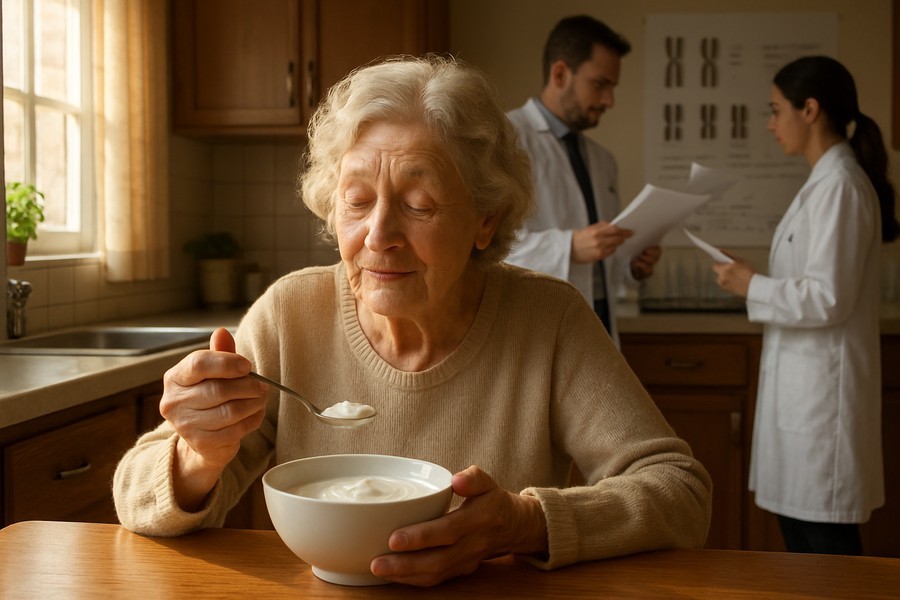
Genetics and Yogurt: The Secret Behind the Longest Living Human's Age
When the woman who held the record for being the oldest person on Earth passed away at the ripe old age of 117 years and 168 days, she left behind a legacy and a mystery. She had made it known that she wanted medical professionals to investigate the reasons behind her extraordinary lifespan.
For three years, a team led by the head of the Genetics department at a prominent medical school in Barcelona worked diligently to unravel the secret. Their research, which was recently published, revealed that her longevity was a result of a combination of factors.
The Importance of Genetics and Lifestyle
The team's leader explained that longevity seems to be a combination of what we inherit from our parents and our lifestyle choices. The ratio of each can vary, but it could be considered a 50-50 split.
The woman was blessed with exceptional genes that shielded her from many health disorders, including some unique genetic variants that had never been seen before. But, it wasn't just her genetics that contributed to her long life. She also practised healthy living habits.
The Role of Diet
She refrained from smoking and drinking alcohol and maintained a diet rich in fish, olive oil, and yogurt. Interestingly, she consumed three plain yogurts every day, free of added sugar. This diet, rich in probiotics, could have played a significant role in her health. These beneficial bacteria aid in fighting inflammation, which is one of the key contributors to aging and disease.
However, the researchers were unable to definitively confirm that her yogurt consumption was solely responsible for the dominance of beneficial bacteria in her gut. This would require a long-term study with sample collection over several years. Yet, they believe it's plausible that the yogurt's positive effect on gut health could have contributed to her well-being and longevity.
A Remarkable Life
The woman, originally born in San Francisco in 1907, lived most of her life in Spain, having moved there when she was just eight years old. She lived through two world wars and two pandemics, and she had three children and 13 great-grandchildren.
Not only did she live for a long time, but she also led a healthy life, void of cancer, cardiovascular disease, or dementia. This suggests that reaching an extremely old age does not necessarily mean poor health, and these two processes can be separately analyzed at a molecular level.
Further Considerations
Researchers collected samples from her blood, saliva, urine, and stool at different times for the study. However, they noted some limitations. Aging and extreme longevity are likely highly individual processes, so broad conclusions from a single subject should be approached with caution.
